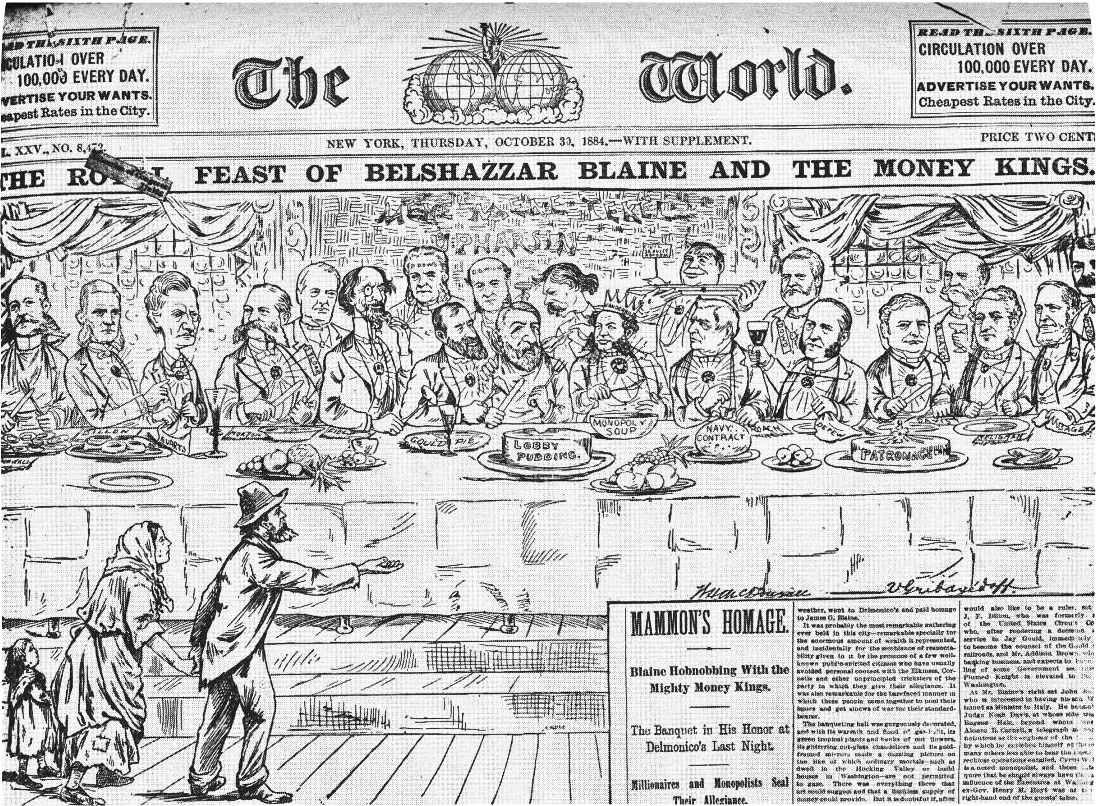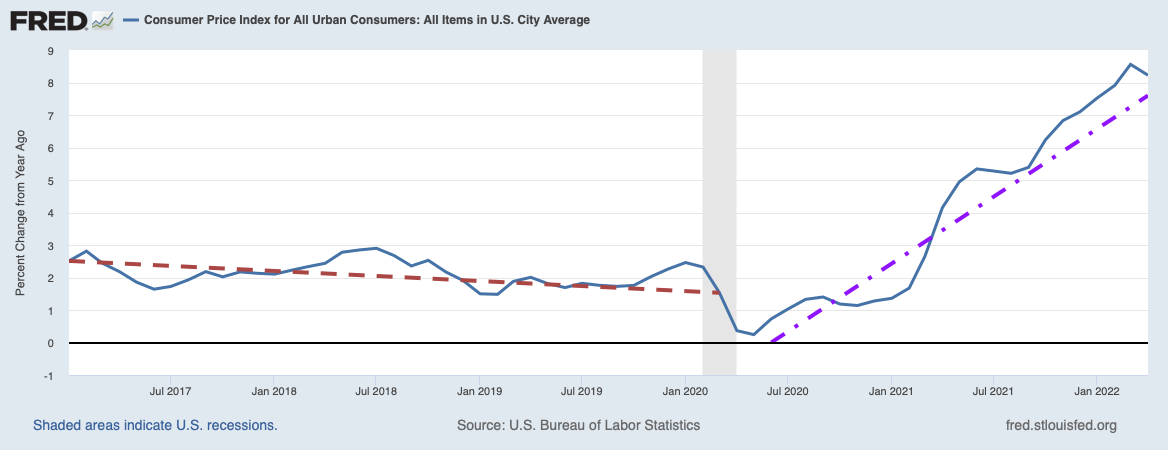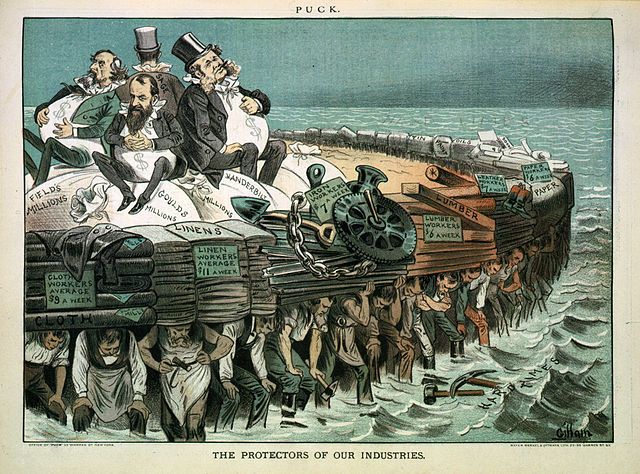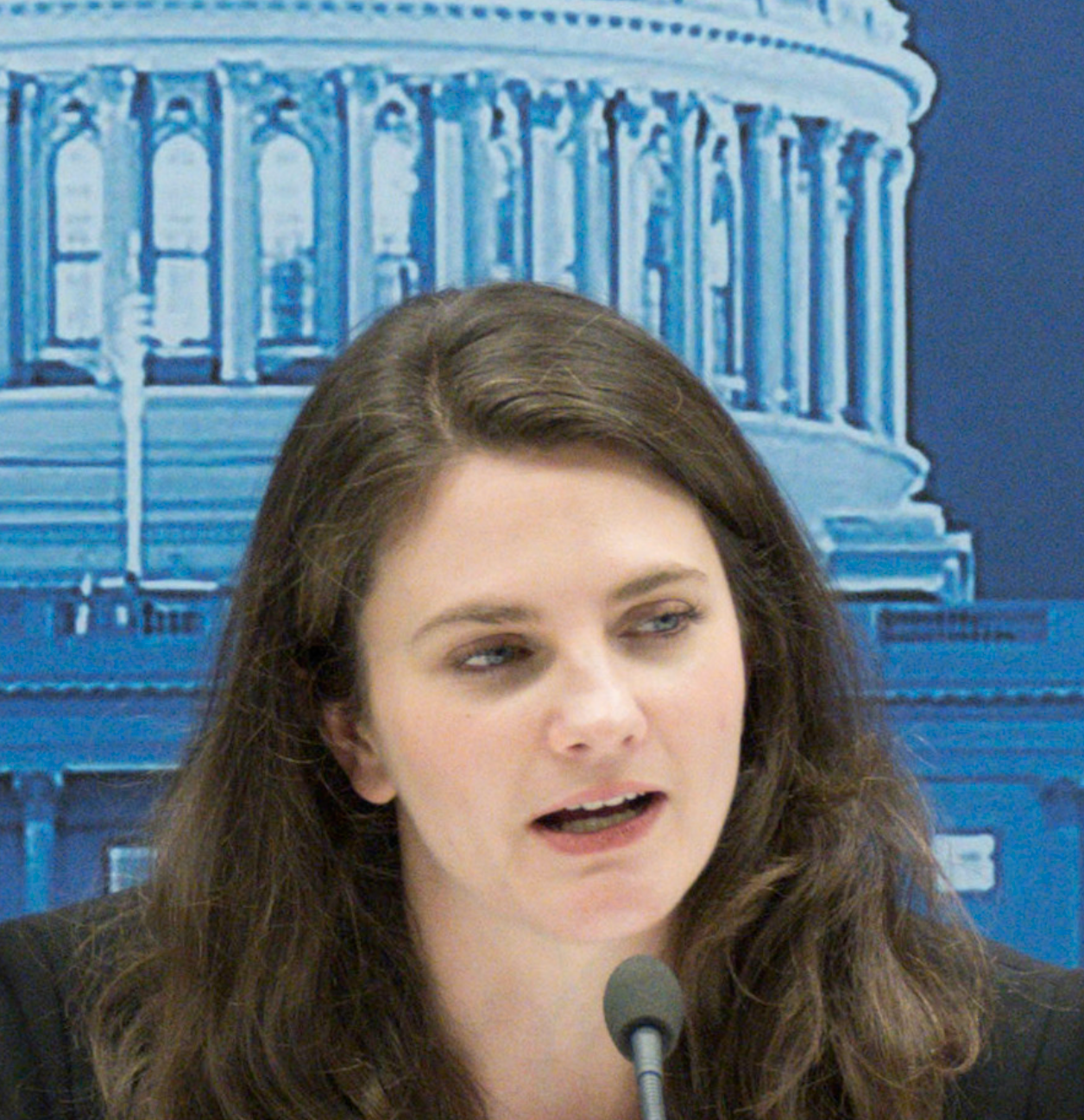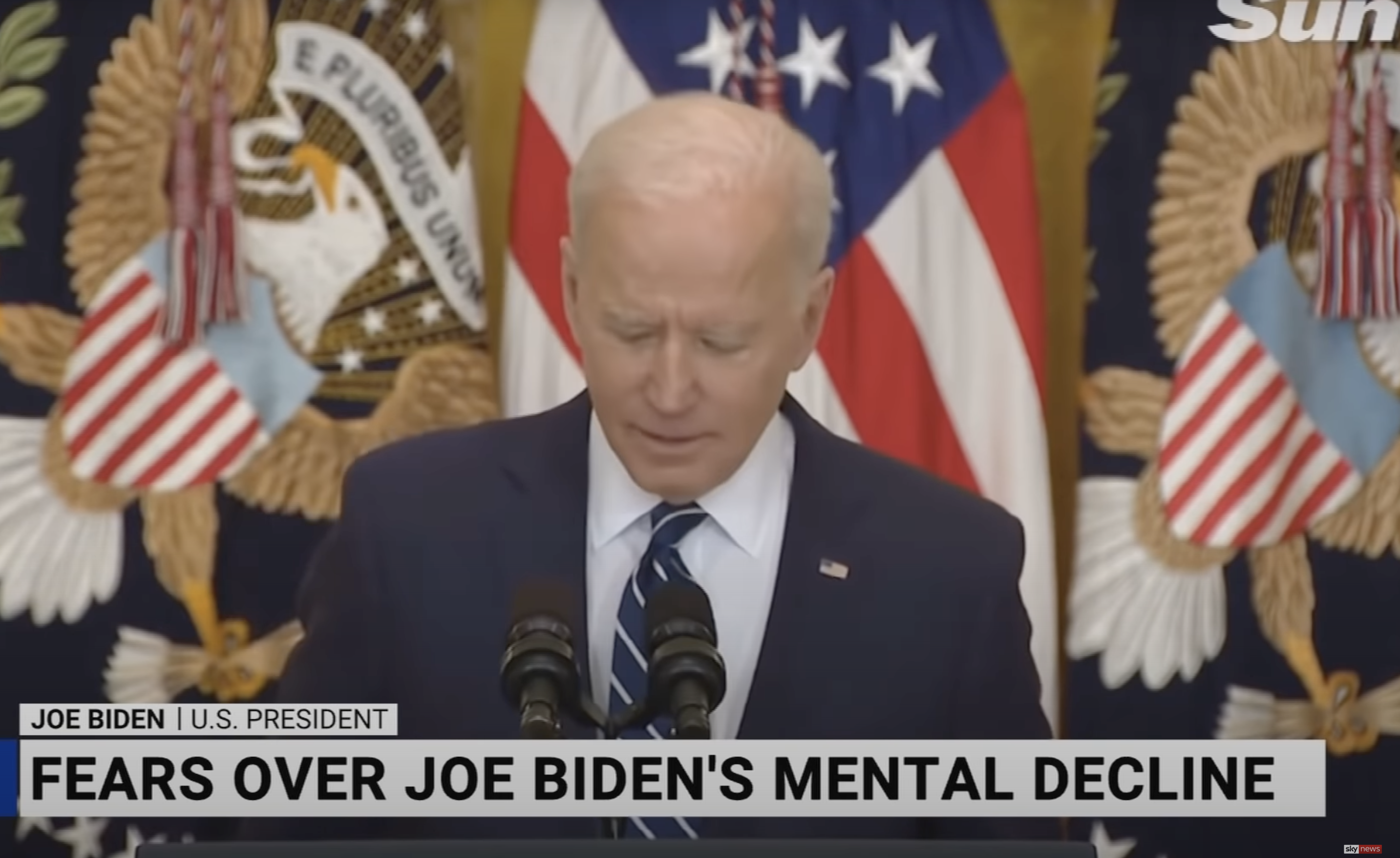A New Paradigm for Democratic Government Coming?
The Boston Tea Party on December 16, 1773. American colonists dressed as native Americans are making clear to the English their contempt for British dirigiste policies.
Wikimedia Commons / Nathaniel Currier (1846)
There are a very large number of reasons why we might expect a new paradigm for democratic government to arise, as I noted in my last post. The old ways of depending on government to solve social and economic problems are spawning even more problems with equal or greater malignity. How can we escape this dilemma?
The Problem With the Old Ruling Paradigm
The predominant ruling paradigm all over the world is dirigisme. Strictly speaking, dirigisme is a class of ideologies that assumes the need and desirability of government to direct the economy. (The French verb dirigere means “to direct.”) However, social problems are so intertwined and related with economic problems that I am redefining the word slightly. In this essay it means ideologies desiring government to be the primary tool for solving both social and economic problems. Defined in this way, a dirigiste government can supervise either a mixed economy or a completely socialist one.
As is becoming increasingly clear in the modern world, what makes dirigiste government ultimately dysfunctional is the incredibly complex and chaotic nature of systems of interacting human beings. The most complex and ubiquitous of these is the economy, but other systems such as companies, legislative bodies, the executive branch of government, and political parties, among others, can all be chaotic in nature. This means very small perturbations on the system can quickly lead to behavior immensely different from what it would have been without the perturbation. The fluid degrees of freedom of such a system are roughly directly proportional to the number of people composing it. The fewer people making up the system, the less chaotic it becomes. This should be intuitively obvious, since the behavior of any individual can be greatly modified by interacting with his or her fellows.
These facts give rise to the “law of unintended consequences.” This phenomenon was recognized at least as far back as the times of John Locke, the father of classical liberalism, in the 17th century. Locke discussed the unintended consequences of interest-rate regulation, a type of price controls, in a letter to a member of Parliament. Somewhat later it was also discussed by Adam Smith in his magisterial An Inquiry into the Nature and Causes of the Wealth of Nations, better known as The Wealth of Nations. The problem with dirigiste government is that as it increasingly interferes with the nuts and bolts of social systems, it creates unintended consequences with greater fecundity. In my last post I listed a number of very serious unintended consequences created by American progressive government.
What Are Governments For?
If governments can not be counted upon to solve most social and economic problems because of unintended consequences, what good are they? What is their role in the scheme of things? To answer those questions we have to go back to the social contract theories of Thomas Hobbes and John Locke in the Age of Enlightenment. Thomas Hobbes began the discussion of the social contract in his book Leviathan, the Leviathan being the state. The social contract is the compact between the ruling authority and the people. Without a social contract there is no state and in Hobbes’ words, people were in a “state of nature” in which nothing limited their behavior other than their own power and inclinations. Theft, rape, and murder would be endemic, and life would be “solitary, poor, nasty, brutish and short.” To protect themselves from each other, primitive humans would agree to a social contract in which they subjected themselves to an absolute sovereign.
John Locke modified this political philosophy by saying that in return for this surrender of authority over their lives to the sovereign, the people gain a protection of their civil rights, including the rights to life and property. These civil rights were believed by Locke to be natural rights, granted either by God or nature. Should the sovereign violate the social contract, the people had every right to overthrow the sovereign and replace him. In a democratic republic like the United States the sovereign is the people, and we can exercise the power to overthrow the ruling government every time we vote. The Constitution of the United States is the American social contract.
The most fundamental purpose of government is then to defend the social contract, which includes defending the country from foreign armed threats. It also means upholding and enforcing laws and treaties passed under its authority. Since the Constitution has within it the procedures for its own modification, and since the Congress and the President have the Constitutional power to change any law or treaty, our social contract has a great deal of flexibility built into it. The question then is, what should be in it?
From the evidence of hard data described in my previous post, attempting to correct every social and economic problem through detailed governmental prescriptions and expensive programs would be highly counterproductive. In fact, we could expect such prescriptions enforced by law often to be greatly harmful to society because of society’s complex and chaotic nature. Must government abandon all hope of eliminating most problems?
A New Paradigm For Ruling Societies?
Perhaps society can use the chaotic nature of social systems in its search for a more just and prosperous country. Rather than relying on government to dictate problem resolutions for the entire country, we should be searching for ways in which government can allow individuals and private organizations to find their own solutions. Rather than fixes being enforced by government from the top down, government should encourage them to bubble up from the bottom.
Solutions found by people for their own problems would not face the same resistance government diktats often do. Since the people doing the deciding would then also be the ones most intimately involved and knowledgable about the problems, the chosen solutions would also be more likely to succeed. Since these fixes would be paid for by those implementing them, they would also likely be of lower cost than if government bureaucrats implemented them. Clearly, this means government should release more of the economic assets they now control by reducing taxes, so the local problem solvers can have the assets to do the job.
There are any number of actions government could take to transfer some of the problem-solving responsibilities from the federal government to individuals, private organizations, and the states. The following are just a few thoughts on how it might be done.
1. Privatize some government functions, particularly the mandatory entitlements.
There are a few government functions we would just as soon have protected from the grubby paws of politicians. One extremely important example of these is Social Security. As originally set up by the Social Security Act of 1935, current payments for Social Security benefits are taken from this year’s Social Security payroll taxes. Anything left over from those taxes after paying for benefits is used to buy unmarketable, special issue government bonds, which are essentially IOUs from the government to the “Old-Aged Reserve Account” in the Treasury. In exchange for these IOUs, the federal government puts the excess Social Security taxes into the general fund. There they are contributions for the year’s deficit spending.
At least that was the way it worked until the year 2011. In that year a growing retired population started to claim more in benefits than Social Security received in taxes. Each year the general fund must pay the difference, placing an additional and growing burden on government revenues. This growing burden will eventually make the federal government insolvent. Unless the government drastically cuts its mandatory entitlement spending for Social Security, Medicare, and Medicaid, it will probably become insolvent sometime between 2025 and 2030. At the very latest, without changes, the federal government will be financially crushed by 2031.
With many variations, the experience of other democratic countries with pay-as-you-go social security programs has been similar.
When George W. Bush campaigned for his first term as President in 2000, he proposed taking more than a trillion dollars out of the special issue bonds and putting them into private investments, including marketable stocks and bonds. In this way we would put Social Security assets into securities that would independently grow in value. It would also help safeguard Social Security assets from Congress’ insatiable spending. Unfortunately, Bush was unable to persuade the cash-starved Congress into making the changes.
In conjunction with some sort of plan to greatly decrease mandatory entitlement spending (We do want the federal government to continue to exist, do we not?), we should also reconsider Bush’s plan. Indeed, to further separate Social Security funds from the Congress, we might well want to privatize Social Security, along with Medicare which is financed similarly, into a Government Sponsored Enterprise (GSE) like Fannie Mae and Freddie Mac. The proposed GSE, owned by those paying the payroll taxes, would then take in the Social Security and Medicare payroll taxes and manage their investment into marketable securities. This kind of arrangement, in combination with measures to reduce entitlement expenditures to tolerable levels, could eventually reduce the financial strain on the federal government, as well as make our retirements one hell of a lot safer.
To reduce government costs and provide a better product, a great many other government functions have been proposed for privatization. These include proposals for privatization of education, management of federal grazing lands, and the running of prisons, among others. In any such proposal priority should be given to proposals that depend on the voluntary acceptance of the service by the ultimate citizen consumer. The aim would be to make the least disturbance to the involved chaotic social system.
2. Get control of the Regulatory State.
Then, there are government functions over which we would like to see a lot more political accountability. Unfortunately, independent regulatory agencies have been designed over the decades, generally by progressive politicians, to be shielded as much as possible from political accountability. A particularly horrible and recently infamous example is the Consumer Financial Protection Board. Yet, some of the greatest obstacles placed before individuals and companies in solving their own problems are created by the federal regulatory state.
In May 2017, The Competitive Enterprise Institute, summing up data from a number of government agencies, estimated total costs on the private economy from federal regulations in 2017 to be $1.902 trillion. In January 2017, the Commerce Department’s Bureau of Economic Analysis estimated the U.S. GDP for 2016 to be $18.861 trillion. This means the U.S. regulatory state costs the U.S. approximately 10% of its GDP annually.

Competitive Enterprise Institute
Note that the three largest categories of regulation in declining order of cost are economic regulation, environmental regulation, and tax compliance regulation. To cut these regulatory costs even by a fraction would release large amounts of capital for investment to create new wealth and new jobs.
Donald Trump has already made a great start in bringing the U.S. regulatory state under control by executive orders. In particular one effort he has ordered begun, which potentially could be revolutionary, is the institution of a regulatory budget. With the regulatory budgeting approach each regulatory agency is assigned a maximum amount in costs it can impose on the economy with its regulations. In the Trump executive order Reducing Regulation and Controlling Regulatory Costs, the President actually requires the institution of regulatory budgeting in Section 3, paragraph (d) of the order. It reads,
(d) During the Presidential budget process, the Director [of the Office of Management and Budget] shall identify to agencies a total amount of incremental costs that will be allowed for each agency in issuing new regulations and repealing regulations for the next fiscal year. No regulations exceeding the agency’s total incremental cost allowance will be permitted in that fiscal year, unless required by law or approved in writing by the Director. The total incremental cost allowance may allow an increase or require a reduction in total regulatory cost.
One can see how setting the maximum costs any agency might impose on the economy could be very difficult. However, the limits of the regulatory budget can always be adjusted up or down as experience dictates. And as experience has shown us, a bureaucrat with no limits will regulate far more than is needed; having some limits is better than no limits whatsoever.
3. Send some federal functions to the states.
Since the very beginning of the Republic, the states composing the union were enabled to experiment with different ways of handling public problems. This enablement was created by the Tenth Amendment of the United States Constitution, which provided that “all powers not delegated to the United States by the Constitution, nor prohibited by it to the States, are reserved to the States respectively, or to the people.” In 1932, Justice Louis Brandeis gave a name to this enablement when he called the states “the laboratories of democracy.” He argued that any “state may, if its citizens choose, serve as a laboratory; and try novel social and economic experiments without risk to the rest of the country.”
This provides an excellent argument to transfer as many federal functions as possible to the state governments. Functions involving the country’s security, border security, international relations, and international trade, issues that involve the entire country, should of course remain with the federal government. However, functions involving the welfare of individuals, such as Medicaid, Medicare, and education should be considered seriously for transfer. In the process, the Federal Government should consider the abolishment or the diminution of the departments of Education and Health and Human Services.
State governments are far more accessible and more influenced by individual citizens than the federal government is. Sending federal powers down to the states is far more likely to give citizens what they want. If a state does not provide some citizens with what they want, the unsatisfied can vote with their feet and move to a state more to their liking.
4. Encourage charitable giving with tax breaks. Otherwise eliminate almost all corporate tax breaks.
Most (if not all) corporate tax breaks that are aimed at particular industries are examples of crony capitalism, and should be eliminated. However tax breaks given for voluntary donations to non-profit charitable groups is something that should be encouraged and probably increased. If encouraged enough, a large increase in charitable giving for charities with diverse causes could replace many welfare programs. The federal government might play a role by providing directory services for the poor to trustworthy charitable organizations.
To increase the capability of charitable groups to help people, Congress should consider giving tax credits rather than taxable income deductions for charitable giving for an amount equivalent to donations. These tax credits could be capped at some maximum amount. They could also be made nonrefundable, i.e. they could reduce tax to zero, but any credit beyond that would be lost. These changes will encourage many, particularly the rich, who are already motivated to give to charities either for idealistic reasons or to reduce taxes, to begin or increase contributions.
Progressives especially should be interested in this kind of change (see below).
Should Progressives Feel Their Causes Are Threatened?
Does this mean progressives would have to give up on stamping out poverty, racism, and other causes for social justice that they feel passionate about? Not at all! It would just mean government is the wrong tool for the job since it has proven so often to be counterproductive.
This also does not mean government has absolutely no roll in assuring social justice. The basic role of government is to defend the social contract, irrespective of anyone’s race, gender, ethnic heritage, religion, or sexual orientation. In the U.S. this means defending everyone’s rights as enumerated in the U.S. Bill of Rights. However, government should focus its efforts on protecting the civil rights of all individuals, not just to individuals belonging to particular groups. Nor should government attempt to force measures not related to safeguarding enumerated and historically accepted civil rights down the throats of a large fraction of the population. To do so would invite at the very least passive resistance creating enforcement problems, and at the very worst domestic terrorism.
The passionate progressive should not feel his causes threatened by such an approach for a couple of reasons. First, a vast majority of Americans, both neoliberal and progressive, already accept that discrimination over most issues due to race, gender, and ethnicity is generally wrong. We have had laws on the books for a very long time outlawing such discrimination and hate crimes, and Americans on both sides of the ideological divide generally support them. Discrimination due to sexual orientation is admittedly more controversial, but I suspect that too will diminish with time.
Unfortunately, my last paragraph will require a great deal of justification for any progressive reader due to different perceptions of just what constitutes a racial bigot. Peter Beinart, who is most definitely a progressive himself, wrote an interesting article on this entitled Republican is Not a Synonym for Racist. He begins his essay with the following observations.
Is american conservatism inherently bigoted? Many conservatives would be enraged by the question. Many liberals suspect the answer is yes.
These different reactions stem, in part, from different definitions of bigotry. Conservatives tend to define it in terms of intention: You’re guilty of bigotry if you’re trying to harm people because of their race, gender, or the like. Liberals are more likely to define it in terms of impact: You’re guilty if your actions disadvantage an already disadvantaged group, irrespective of your motives.
Let us ignore the misnomers of calling neoliberals “conservatives”, and identifying progressives as “liberals,” which they most definitely are not. Clearly, the question of whether or not neoliberals are racist can not be settled by public opinion polls. The vast majority of neoliberals will insist they are not, and the vast majority of progressives will claim they are. We need more objective data to determine the truth.
I would argue that saying a group is racist because they advocate actions that “disadvantage an already disadvantaged group, irrespective of your motives” is foolish. If some actions (or lack thereof) hurt a particular racial group, the harm could come about for reasons other than racial discrimination. I have already remarked on how the eminent progressive Daniel Patrick Moynihan discovered how the War on Poverty of the 1960s hurt black families. Should I consider the progressive Democrats of the time to be racist because their War on Poverty hurt black families, and as it turns out, white and hispanic families as well? Their intentions were to do their very best to help the poor, including many black families. They were not racists, just very foolish on how they went about trying to aid poor and black Americans. The reason for the importance of using intentions to define racial bigotry is that intentions are the motivation for what we try to do. The consequences of the policies you follow are the results of your policy selections driven by your intentions; those consequences are not the cause of the intentions. No matter how much you want to help minorities, if you choose bad policies, you will still hurt them. To define bigotry through policy results confuses cause and effect.
If the approximately 36% of Americans who are neoliberal (often misnamed “conservatives”) are fundamentally racist, we would expect a large number of them to be members of racist groups, and we would expect a large number of racial hate crimes. Yet, statistics from the Southern Poverty Law Center and the FBI tell a completely different story. Using these statistics, CNN put together some illuminating time plots of the numbers of racial hate groups and hate crimes. Consider the plot below.

CNN / Southern Poverty Law Center
The number of racial hate groups has been declining with time, with the number of neo-Nazi groups declining precipitously over the past decade from over 200 in 2007 to just 99 in 2016. These numbers, however, do not give a picture of the small number of people belonging to the hate groups. For example, according to Wikipedia, the largest neo-Nazi group in the U.S. is the National Socialist Movement with around 400 members in 32 states.
If there were a huge number of American racists, that fact should be reflected in a large number of hate crimes in the U.S. Again, a CNN plot of FBI racial hate crime statistics is revealing.

CNN / FBI Uniformed Crime Reports
From this plot you can see that all race hate crimes, with the exception of those against native Americans, which are very small in number, have been declining steadily since 1996. This is particularly true for those against blacks, which have been cut approximately in half. Any racial hate crime at all is completely unacceptable, but this data again does not support a picture of a United States dominated by racism. The FBI reported an estimated total of 1.2 million violent crimes in the U.S. for 2015, of which the 1621 hate crimes against blacks represents 0.135% of the total. Although racism has not yet been totally stamped out, it is not the dominating reality of the United States.
A second reason for progressives not to fear a diminished federal government role is they do not need government to work for their causes. They have the power to harness the actions of like-minded people to advance their causes. They could organize non-profit charitable groups to assist the poor of whatever minority group seeking a better life. In fact, using private organizations to help people, progressives almost certainly could enlist many neoliberals to their cause, particularly the richer ones.
If progressives were to accept a new paradigm for government that minimizes most government roles in solving social and economic problems, yet allows individuals and groups a greater ability to cooperate voluntarily in their solution, they might find faster and better progress toward their social goals.
Views: 2,615























